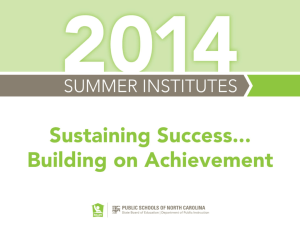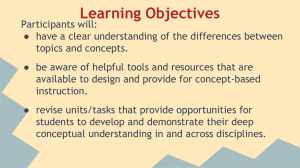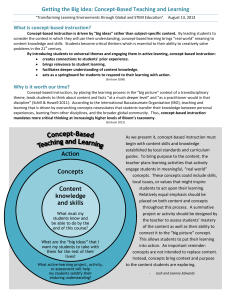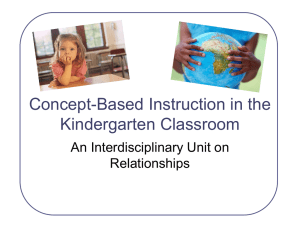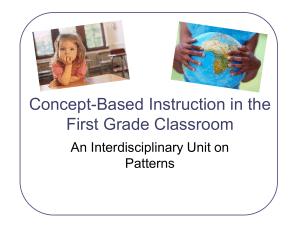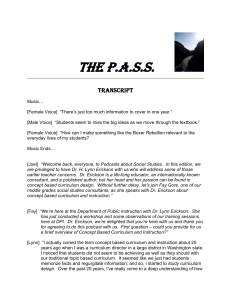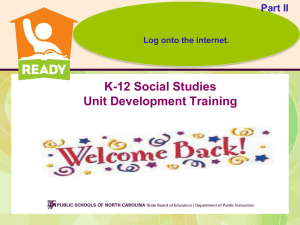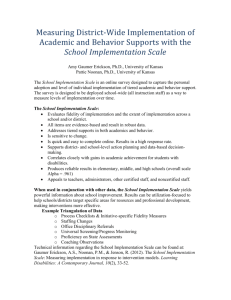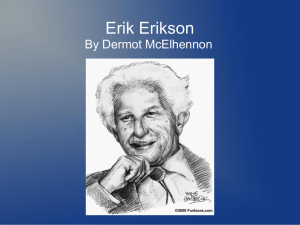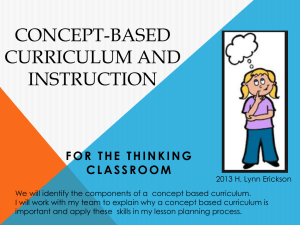Terminology for Social Studies November Webinar
advertisement
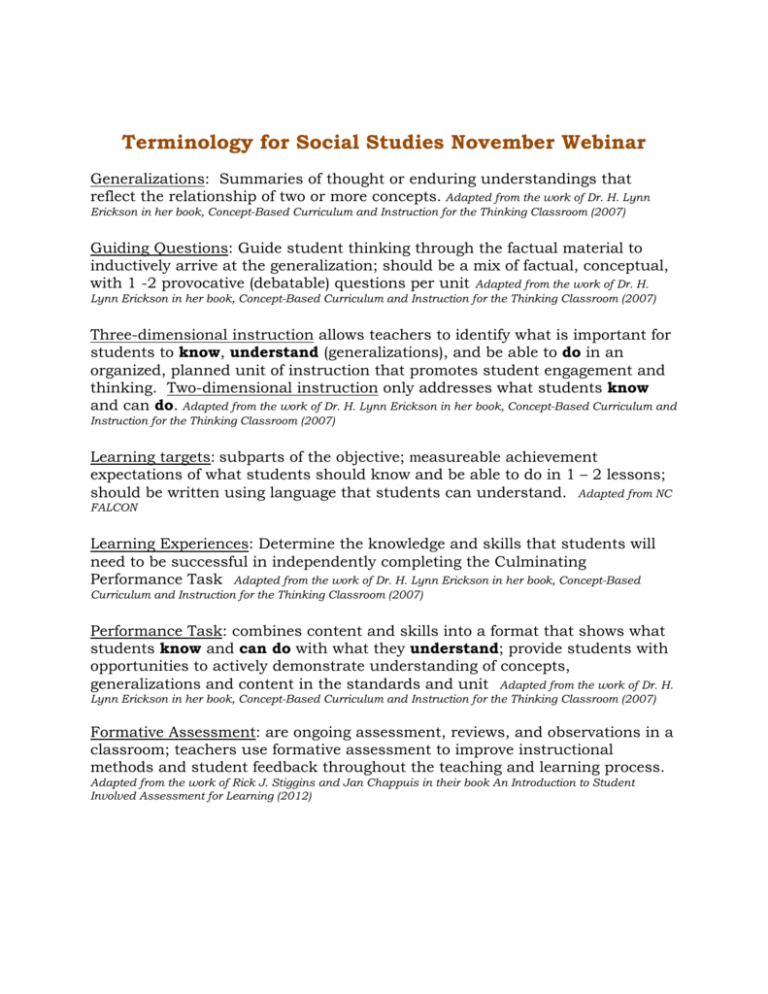
Terminology for Social Studies November Webinar Generalizations: Summaries of thought or enduring understandings that reflect the relationship of two or more concepts. Adapted from the work of Dr. H. Lynn Erickson in her book, Concept-Based Curriculum and Instruction for the Thinking Classroom (2007) Guiding Questions: Guide student thinking through the factual material to inductively arrive at the generalization; should be a mix of factual, conceptual, with 1 -2 provocative (debatable) questions per unit Adapted from the work of Dr. H. Lynn Erickson in her book, Concept-Based Curriculum and Instruction for the Thinking Classroom (2007) Three-dimensional instruction allows teachers to identify what is important for students to know, understand (generalizations), and be able to do in an organized, planned unit of instruction that promotes student engagement and thinking. Two-dimensional instruction only addresses what students know and can do. Adapted from the work of Dr. H. Lynn Erickson in her book, Concept-Based Curriculum and Instruction for the Thinking Classroom (2007) Learning targets: subparts of the objective; measureable achievement expectations of what students should know and be able to do in 1 – 2 lessons; should be written using language that students can understand. Adapted from NC FALCON Learning Experiences: Determine the knowledge and skills that students will need to be successful in independently completing the Culminating Performance Task Adapted from the work of Dr. H. Lynn Erickson in her book, Concept-Based Curriculum and Instruction for the Thinking Classroom (2007) Performance Task: combines content and skills into a format that shows what students know and can do with what they understand; provide students with opportunities to actively demonstrate understanding of concepts, generalizations and content in the standards and unit Adapted from the work of Dr. H. Lynn Erickson in her book, Concept-Based Curriculum and Instruction for the Thinking Classroom (2007) Formative Assessment: are ongoing assessment, reviews, and observations in a classroom; teachers use formative assessment to improve instructional methods and student feedback throughout the teaching and learning process. Adapted from the work of Rick J. Stiggins and Jan Chappuis in their book An Introduction to Student Involved Assessment for Learning (2012)
